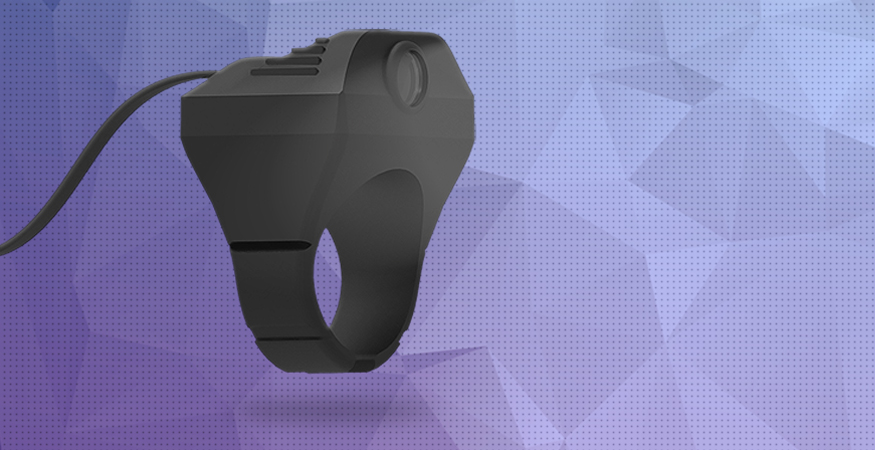Problem Statement
Persons with Visual Impairment Face Difficulties in Accessing Information Independently
Although there are currently smartphone applications that would help the visually impaired access information, the accessibility tools for the visually impaired are suboptimal. In reality, navigating through a smart phone's graphic user interface (GUI) is a complex and difficult task for visually impaired users and presents an ongoing struggle.
Solution
The FingerReader - A Device that Translates Images into Audio Feedback
Worn on the finger, the FingerReader comprises a micro camera, a set of computer vision algorithms and an audio feedback function. Primarily designed for persons with visual impairment to access to information on the go, users are able to point at objects or text phrases and have the device read out the name of the objects or the text that the device is pointing at.
The FingerReader can be used not only by the blind community but also by persons with learning difficulties such as those with dyslexia.
Outcomes
Persons with low vision or visual impairment will be able to access printed information independently.
-
Grantee
Augmented Human Lab, Singapore University of Technology and Design -
Beneficiaries
Persons with Disabilities
more about grantee
The Augmented Human Lab (SUTD) focuses on exploring the ways of creating ‘enabling’ human-computer interfaces that seamlessly integrate with a user’s mind, body and behaviour, providing an enhanced perception.
For more information about the Augmented Human Lab, please visit http://www.ahlab.org.

